The celebrated Soviet-era poet and singer Vladimir Vysotsky predicted the disorientation way back in 1965, at a time when he could only dream of what it might be like to be released from the communist straitjacket:
They gave me my freedom yesterday,
What on earth am I going to do with it?
The West assumed that Russians would simply know how to use their liberty, as if it was something totally natural – as if Russians were just Americans who had been lumbered with communism for a few years: take away the constraints, give them a free market and everything will be fine. Toby Gati, Clinton’s Russia adviser who prepared the first aid package to Russia, admits: ‘Perhaps we in the US had a very narrow view of Soviet society and we overestimated the Russians’ desire to live by our rules. We started with the assumption that the transformation would be quick and the chaos, which, incidentally, was not seen as chaos but as a transitional period, would soon be replaced by normal life.’ 5
But in the 1990s many Russians found themselves drowning in the tide of capitalism rather than riding it. Moreover there was a deep resentment at the sense of being instructed by outsiders in how to be ‘civilised’. It is true that communist ideology was paper-thin, and most Russians jettisoned it easily. But they did not lose certain ways of thinking that predate the communist era and lie deep in the Russian psyche. It was common, and still is, to hear Russians regret the loss of the ‘togetherness’ they felt under communism. The ‘collective’ was not a Soviet invention, but had roots in Russian history. But it rubbed against the grain of the individualist Western mores being forced upon them now.
The picture I have described above is a bleak one, perhaps a little bleaker than the overall situation, because undoubtedly there were great joys and advances under Yeltsin too. But it is the darker side of life in the 1990s – so easily overlooked in the West – that provided the fertile soil into which Putin would plant his ideas.
From kommunalka to Kremlin
This is a book about Putin in power, not a biography, but a glance at his earlier years is revealing. His background and path to the highest office give clues to the contradictory behaviour he would exhibit as president: the democrat who doesn’t trust democracy; the Westerniser whose understanding of the West is flawed and limited; a man who believes in the free market but whose world view was formed in the communist past; a fiery believer in the Russian state, with the icy, ruthless attitude of the ex-KGB man towards its ‘enemies’.
Vladimir Vladimirovich Putin was born in 1952 in Leningrad, a city still being rebuilt from the rubble of the Second World War, when it was besieged and bombarded by the Germans for 900 days. His childhood was spent in a kommunalka , a communal flat, in which his family had one room and shared the kitchen and toilet with other families – an experience with bitter-sweet memories for many Russians. On the one hand the conditions were awful – there was no bathroom, no hot water, and rats in the stairwell; on the other hand, communal living and the shared experience of post-war reconstruction did much to reinforce the optimistic communist ideology of the day. The young Putin’s thinking would have been shaped entirely by crude Soviet propaganda. His was not a dissident or intellectual family which might have listened to foreign radio broadcasts or indulged in subversive discussions. At school he learned that the West was an evil world where capitalists exploited the workers and prepared for war against the USSR; life in his own country, he was told, was immeasurably happier, thanks to the wise leadership of the Communist Party. Even the brief ‘Thaw’ under Nikita Khrushchev, after Stalin’s death, was over by the time Putin was 12, so his secondary school years passed under the aegis of Leonid Brezhnev – a period marked by growing militarism, confrontation with the West, political repression and ideological rigidity. It was during these years that the young Putin showed an interest in joining the party’s enforcement machine, the KGB, an ambition he realised only after graduating from Leningrad’s law school in 1975.
Putin says he did not even think about the mass terror inflicted by the KGB’s predecessor, the NKVD, under Stalin. Indeed, he probably knew next to nothing about it. ‘My ideas about the KGB were based on romantic stories about the work of intelligence agents,’ he says. ‘Without any exaggeration you could say I was the successful product of a Soviet patriotic upbringing.’ 6
He would have known exactly what the KGB got up to, however, when he spent his first decade as an officer in Leningrad during the late 1970s and early 1980s. This was the period when it incarcerated dissidents in labour camps and mental asylums, confiscated foreign literature, jammed foreign broadcasts, controlled all contacts with foreign visitors, vetted the few Soviet citizens allowed to travel abroad and in every possible way helped the Communist Party to exercise total control over society. Abroad, its task was to subvert Western democracies, steal military and industrial secrets, spread communism to developing countries and help the secret services of the ‘fraternal socialist states’ of Eastern Europe to crack down on dissent. We do not know exactly what Putin did during those years, but one can infer from his work in counter-intelligence and in monitoring foreigners in Leningrad that he was totally committed to the Soviet cause and vigilant to the dangers of Western subversion. To this day he is crushing in his contempt for those who ‘betray the motherland’ and (as we saw in 2010 when he welcomed home ten Russian spies who were uncovered in the US) full of admiration for those who follow his own career path as a secret agent.
Sergei Roldugin, a family friend, recalls that when he asked the young Putin at the time exactly what he did in the KGB in Leningrad, he replied enigmatically: ‘I am a specialist in mingling with people.’
In 1985, promoted to the rank of major, Putin was sent to mingle with the people of communist East Germany. He was based in Dresden, and says his job was ‘political intelligence’ – recruiting informants and gathering information about political figures and about the plans of ‘enemy number one’ – NATO. At this stage he must still have been ideologically driven, and still he had no first-hand experience of the West. Neither did he experience at first hand the remarkable awakening of the Soviet Union under Mikhail Gorbachev’s policies of perestroika (restructuring) and glasnost (openness). While Moscow newspapers and theatres were tearing up the falsified images of the Soviet past and slowly dropping the clichés about Western villainy, Putin was based in one of the communist bloc’s most repressive states. The East German leader, Erich Honecker, resisted the winds of change blowing in from Moscow to the last. Putin would have witnessed the gathering unrest in East Germany, however, which culminated in the fall of the Berlin Wall in late 1989. Indeed, in the weeks leading up to the collapse of communist power, it was precisely in Dresden that the peaceful revolution began, with demonstrators taking to the streets to protest – right under Putin’s nose.
So Russia’s future leader had an unusual vantage point from which to observe the collapse of communism. While missing the Gorbachev revolution at home, he saw at close quarters how East Europeans seized their destiny and wrested themselves free of the Soviet orbit. In his KGB role he was also scrutinising NATO’s response, and will have been keenly aware of the verbal promise allegedly given to Gorbachev by the US secretary of state, James Baker, during the German reunification process, that the alliance would not take advantage of the collapse of communism to expand into the former Soviet bloc.
Читать дальше
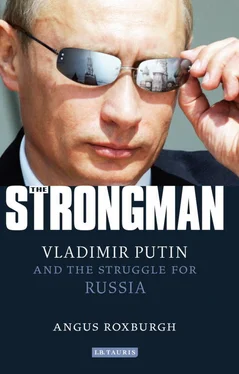
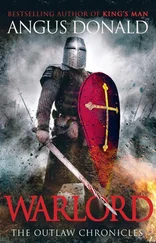
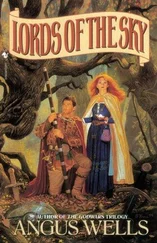


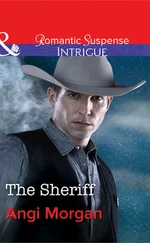


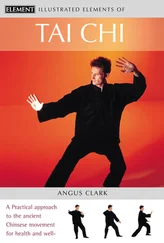

![Brian Thompson - A Monkey Among Crocodiles - The Life, Loves and Lawsuits of Mrs Georgina Weldon – a disastrous Victorian [Text only]](/books/704922/brian-thompson-a-monkey-among-crocodiles-the-life-thumb.webp)

